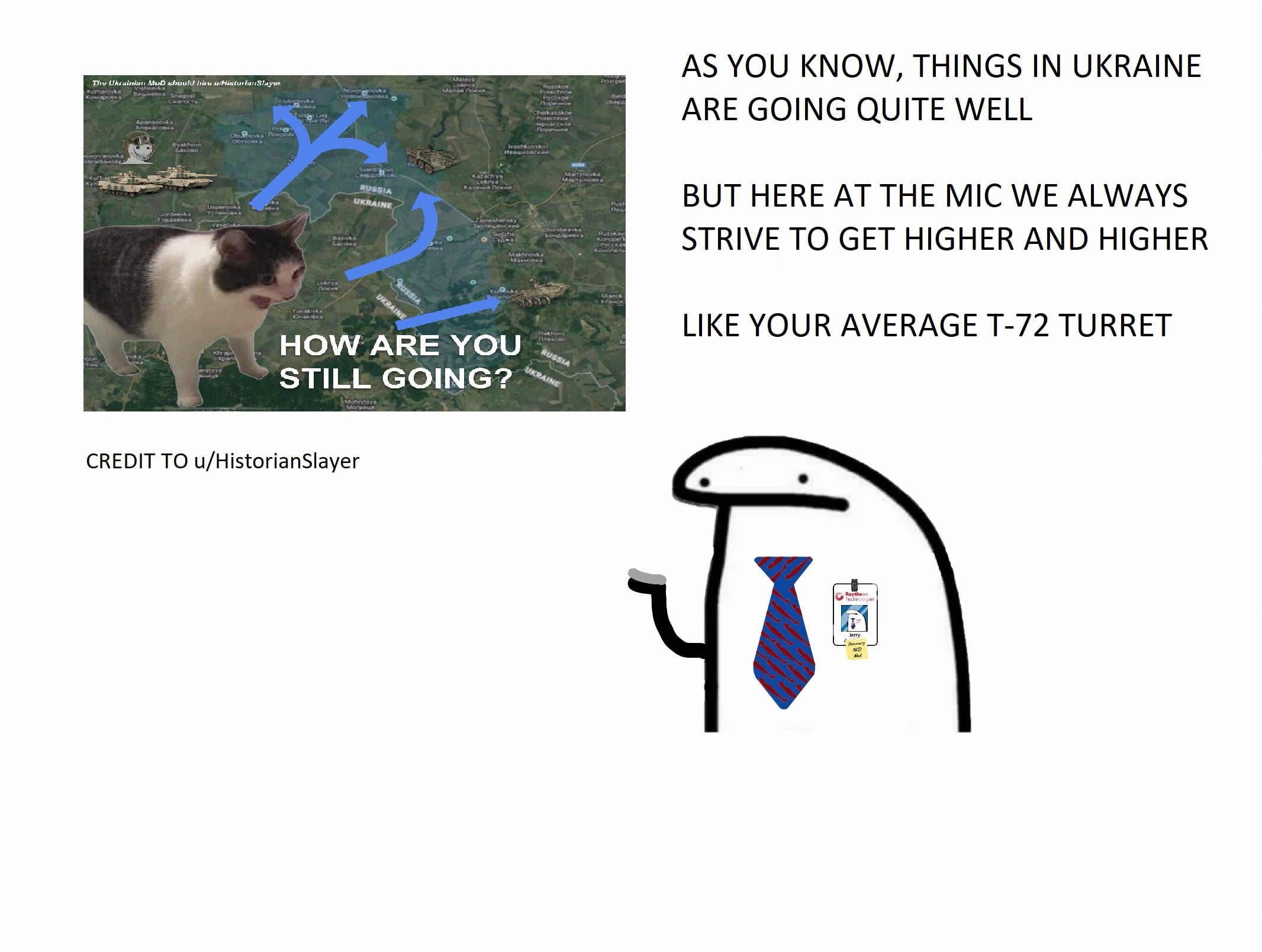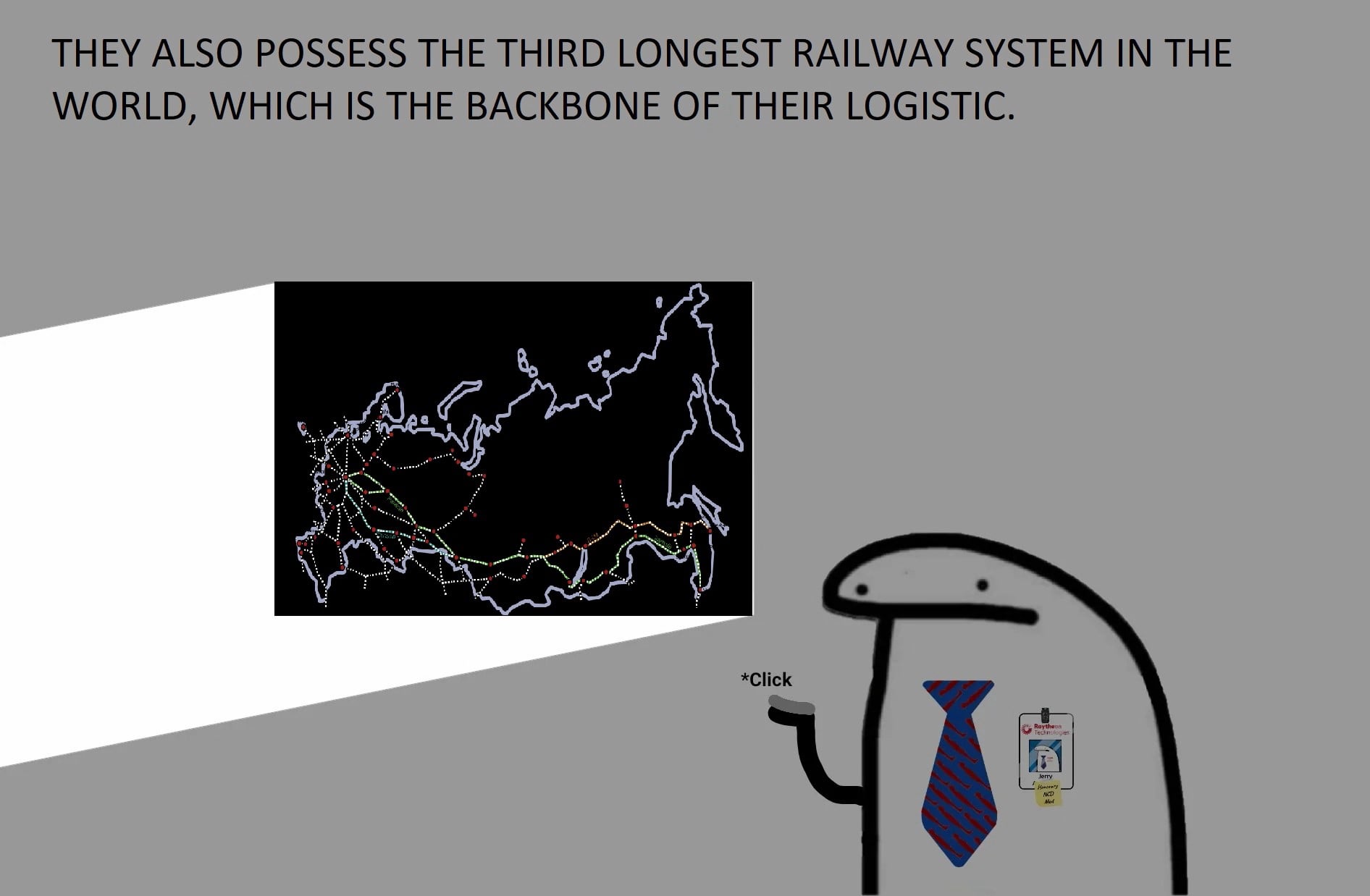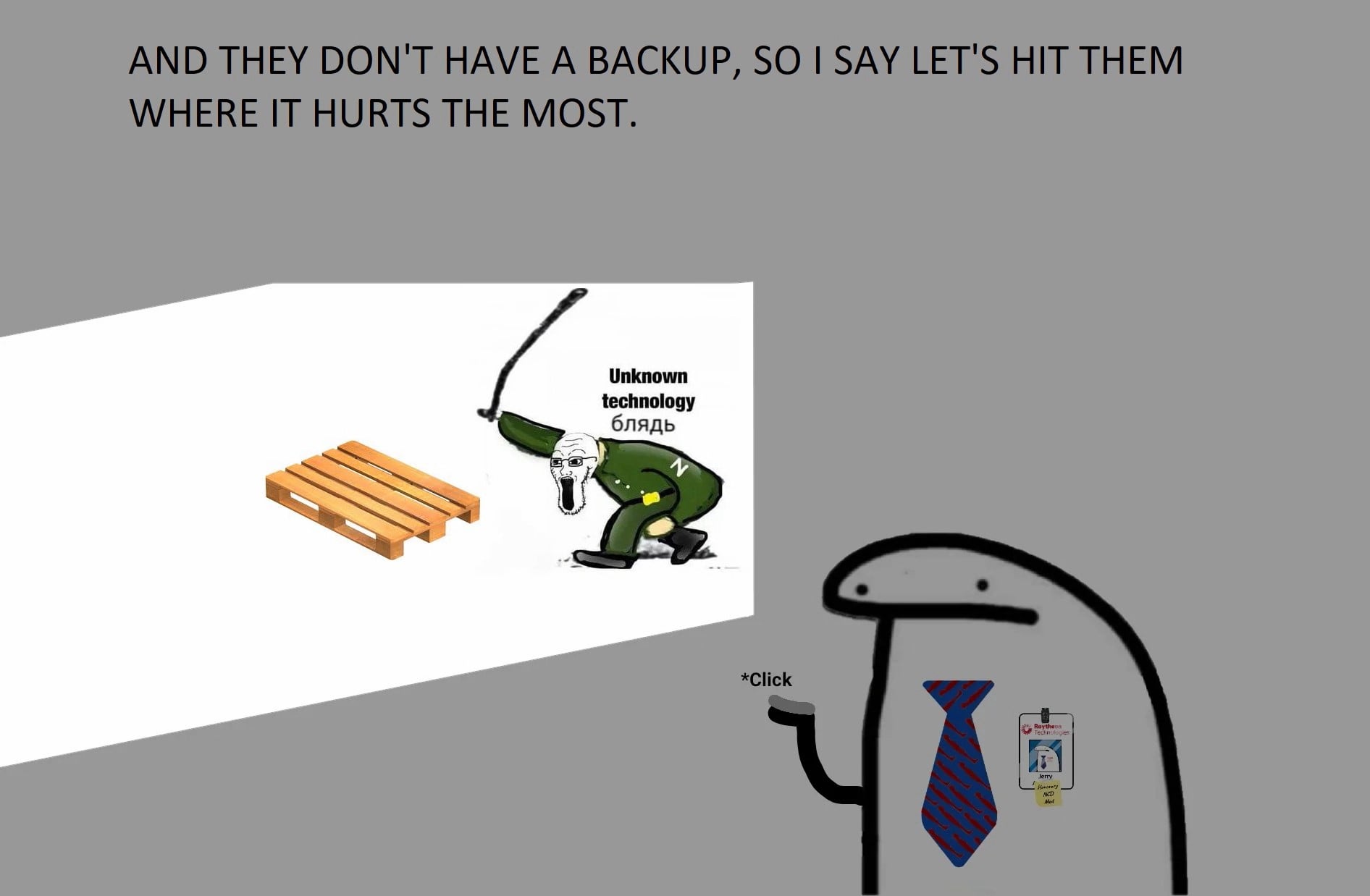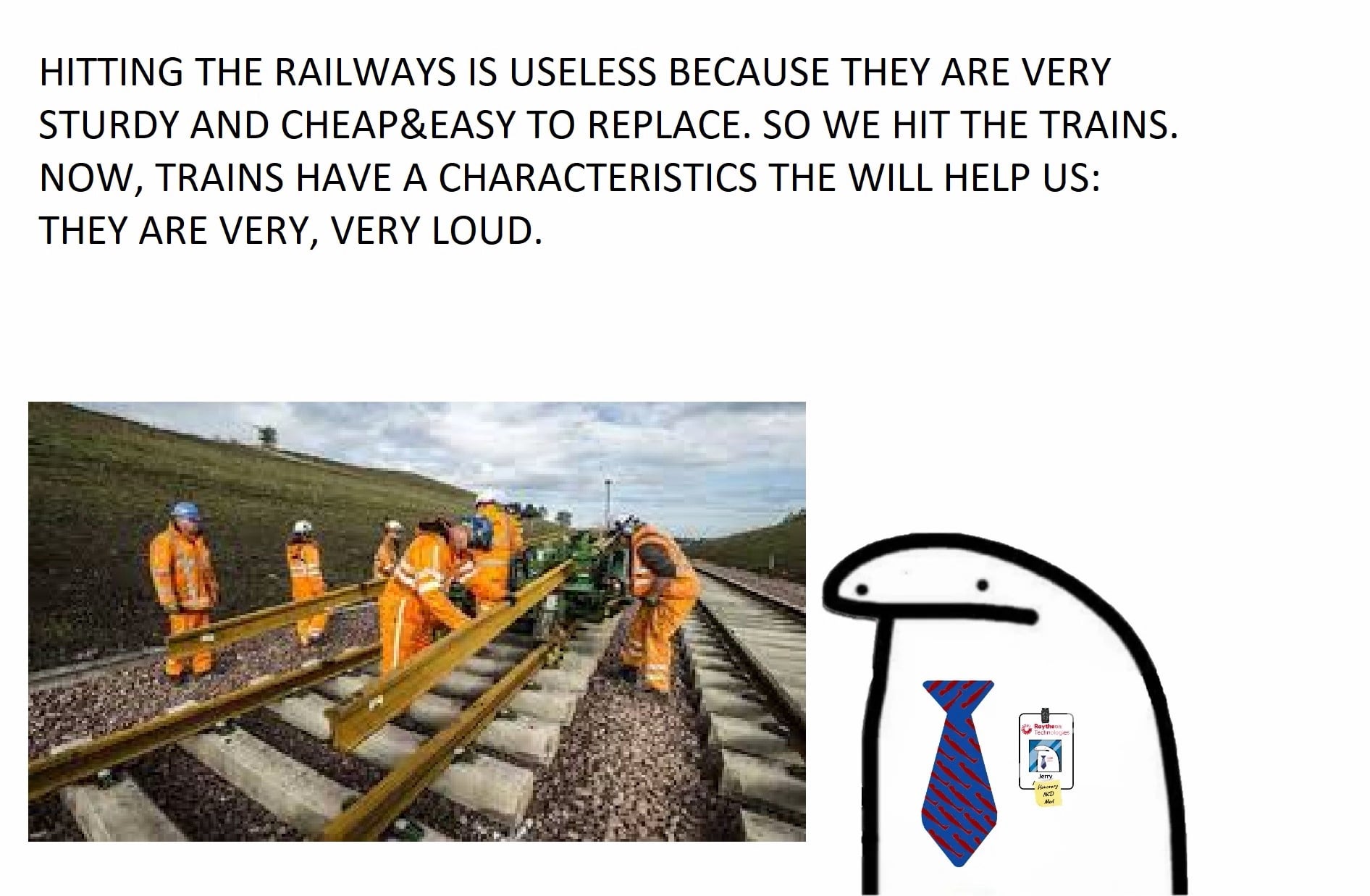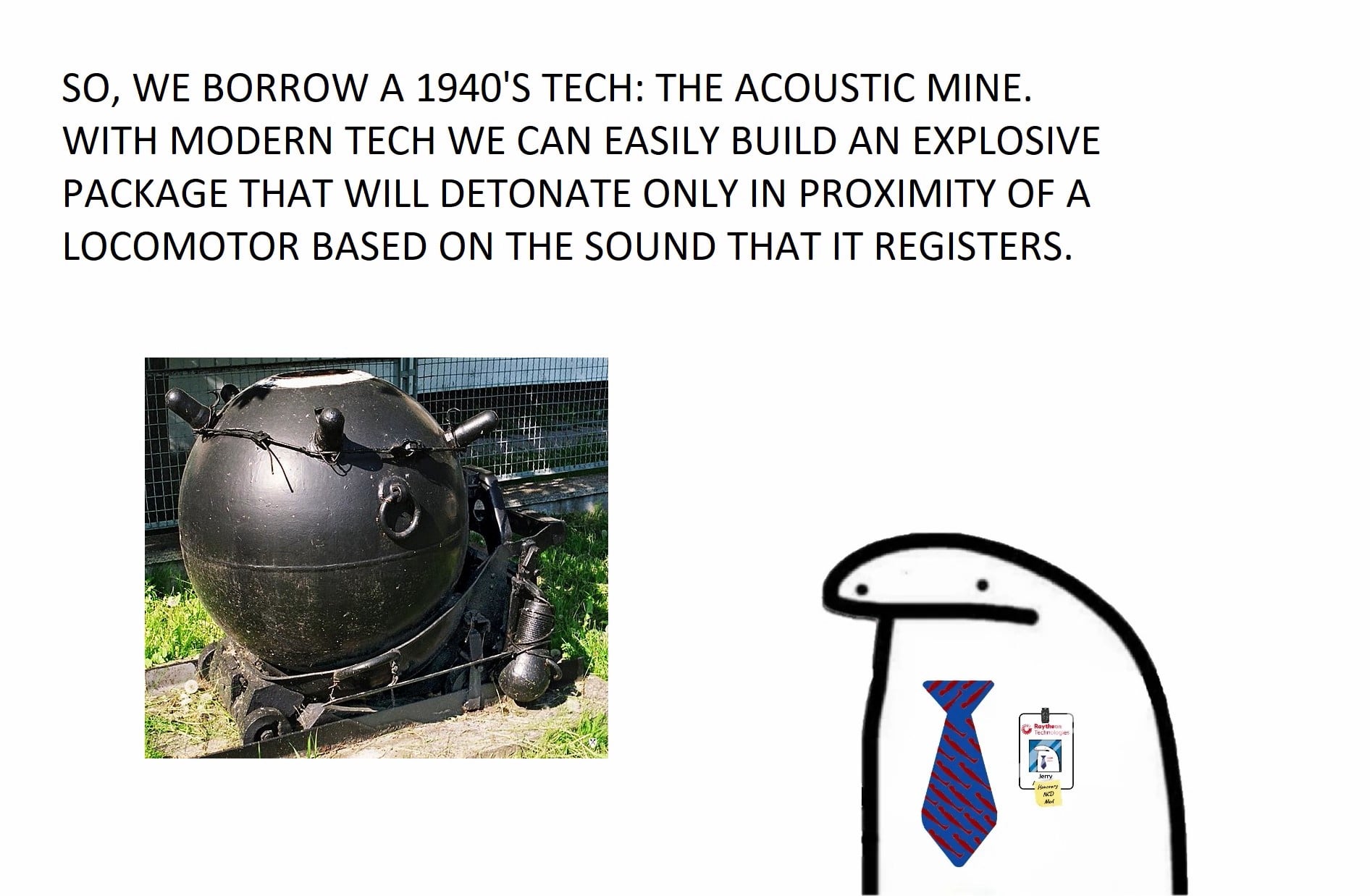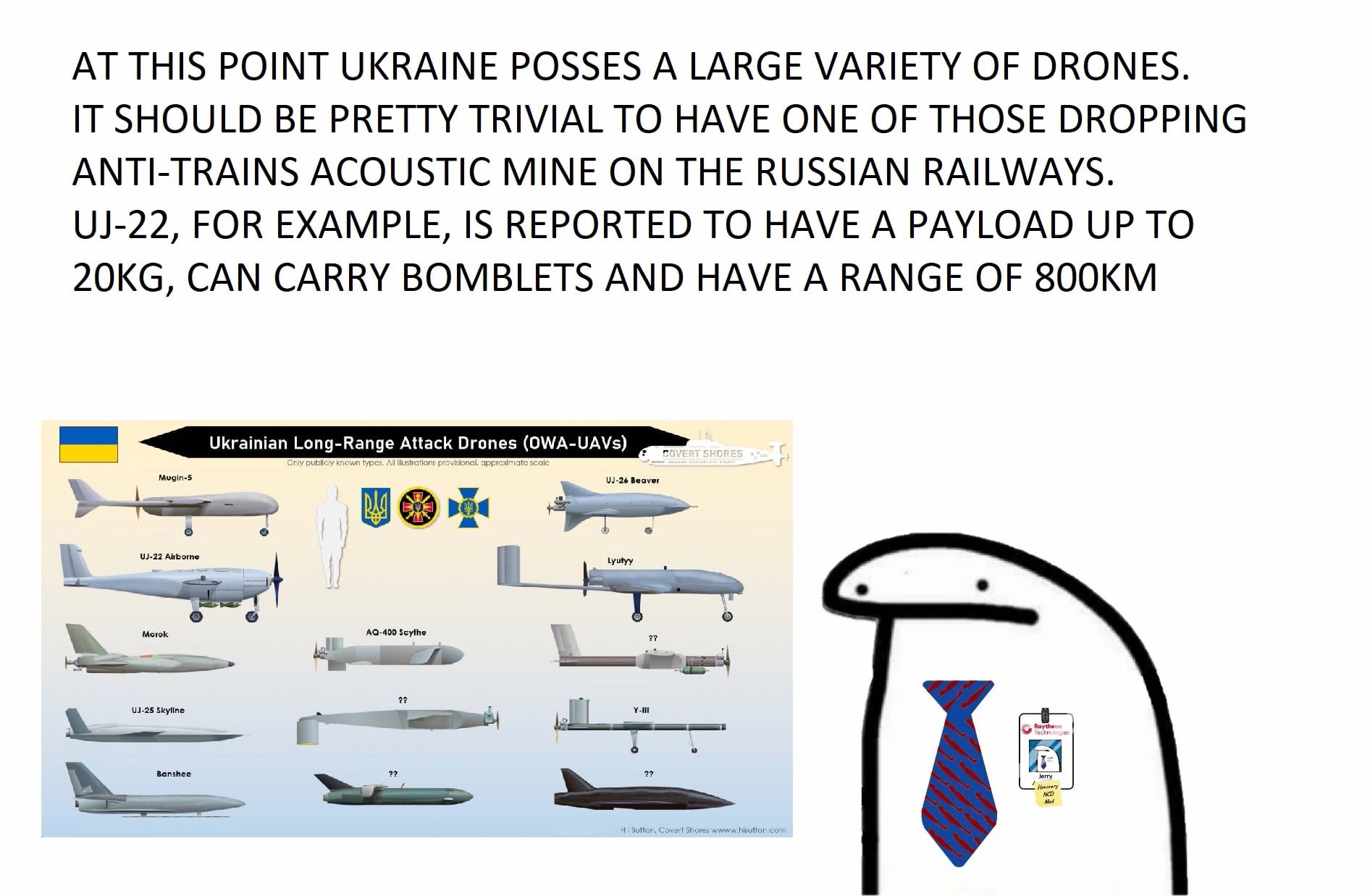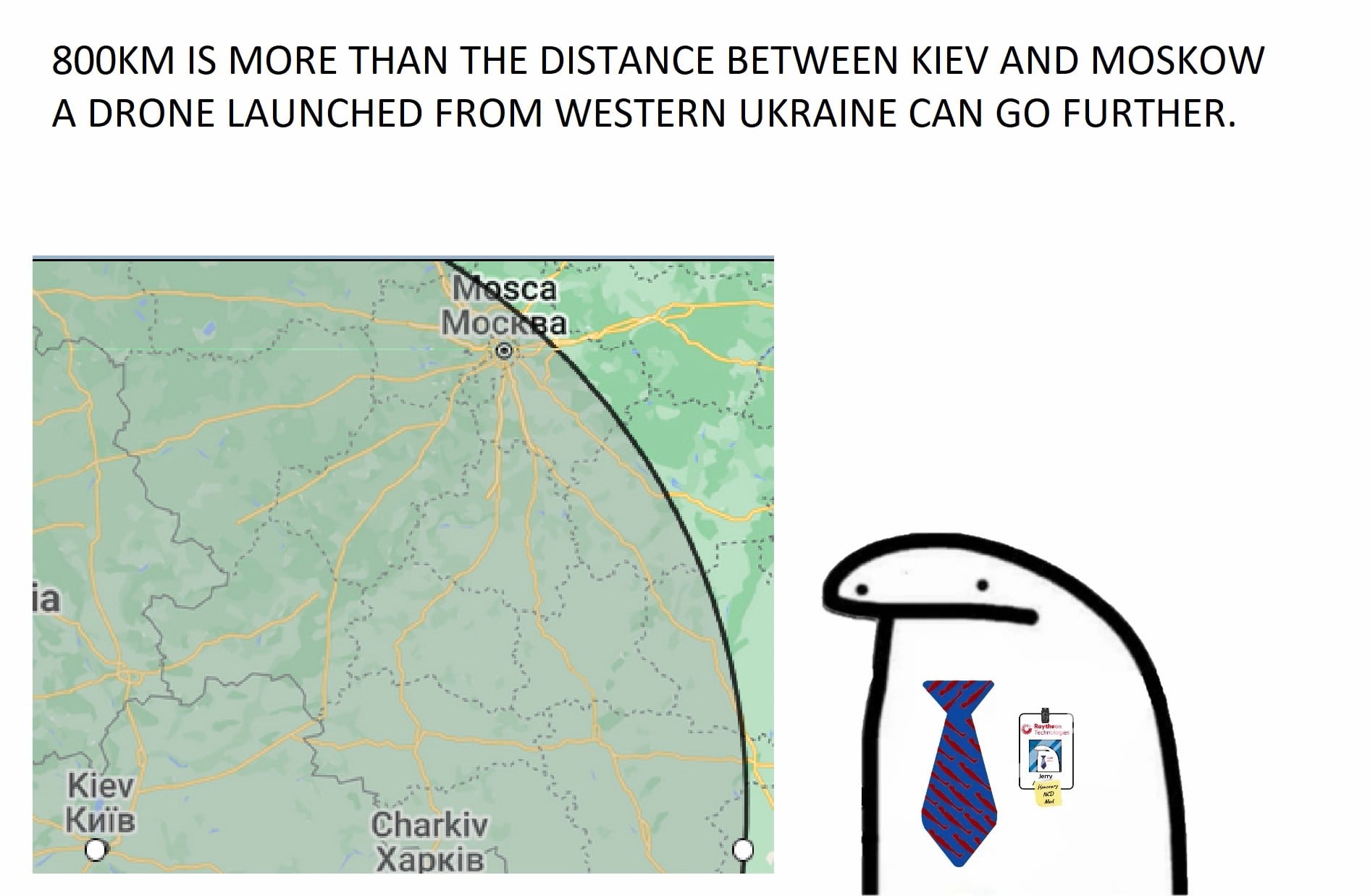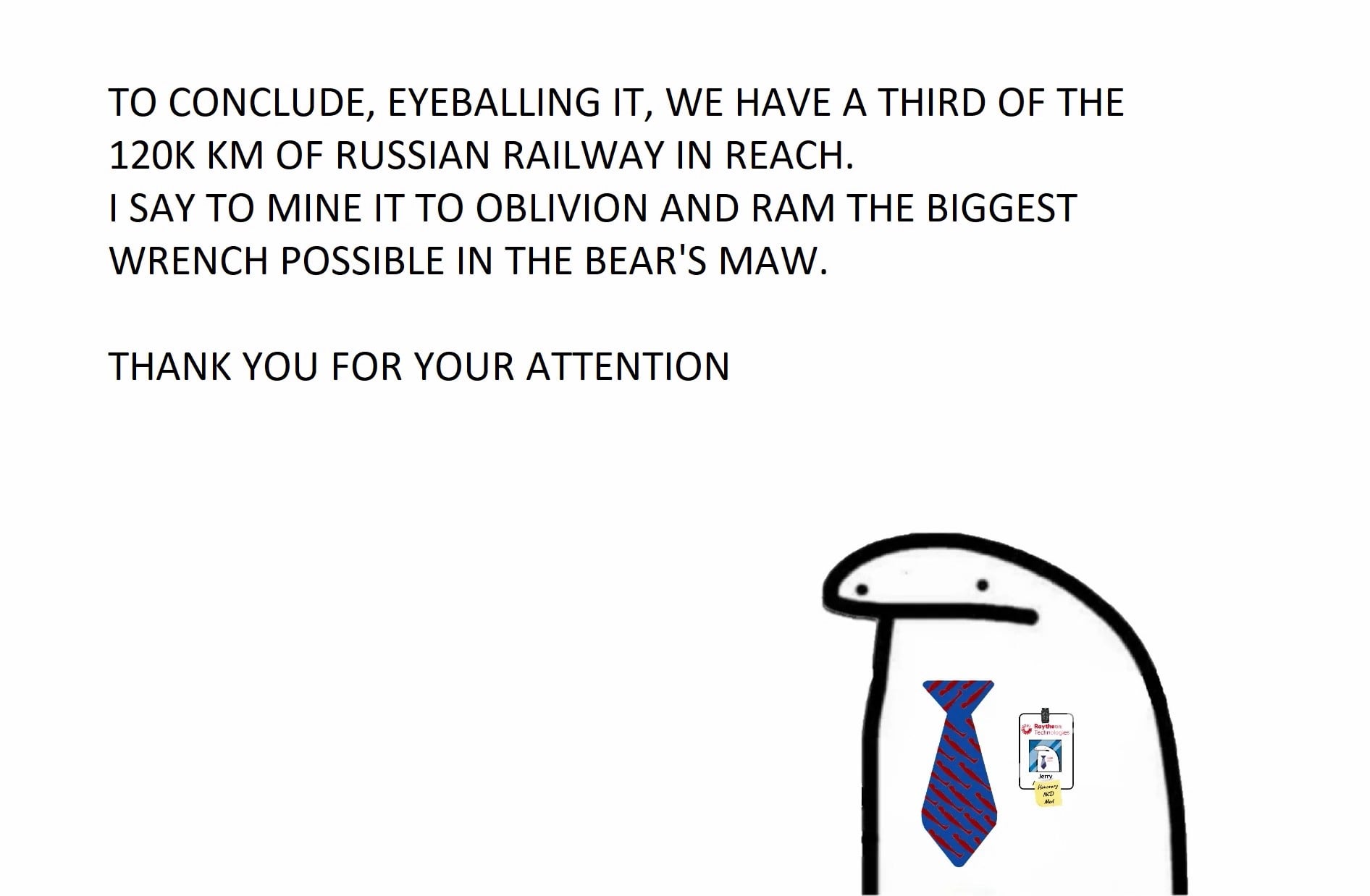Sir, this is NCD, emphasis on the N
Ah yes, the Nuclear Chicken Disco
WTF is this, a Perun video? Way too credible.
Counterpoint:
I propose launching headcrabs everywhere via medium range ballistic missiles, and draining the Black Sea to open up new land avenues of attack toward Crimea.
Errr. Shit wrong timeline.
RAAMS has a magnetic fuze, so if it lands flat side up on a railway track, then it should destroy locomotive with its shaped charge (it can’t be that different to a tank in its signature)
if train rides through, it’ll get destroyed. if it doesn’t, mission accomplished - that segment of track was denied to trains for the time being, then it self-destructed anyway so repairs are necessary. no downsides. the longer variant lasts 2 days, maybe there’s a way to tweak it
or just drop TM-72s from drones, also with magnetic fuze
The biggest concern is that you might end up blowing up a passenger train full of civilians on accident.
I like trains.
And they don’t have a backup
I mean, there’s walking.
It’s less fun, but if you want to move stuff badly enough, you can do it.
https://en.wikipedia.org/wiki/Ho_Chi_Minh_trail
The Ho Chi Minh Trail (Vietnamese: Đường mòn Hồ Chí Minh), also called Annamite Range Trail (Vietnamese: Đường Trường Sơn) was a logistical network of roads and trails that ran from North Vietnam to South Vietnam through the kingdoms of Laos and Cambodia. The system provided support, in the form of manpower and materiel, to the Viet Cong (or “VC”) and the People’s Army of Vietnam (PAVN), during the Vietnam War.
According to the U.S. National Security Agency’s official history of the war, the trail system was “one of the great achievements of military engineering of the 20th century”. The trail was able to effectively supply troops fighting in the south, an unparalleled military feat, given it was the site of the single most intense air interdiction campaign in history.
They also had bicycles, which helped a ton in moving both personnel and material. If I were going to have a guerilla army I’d issue them bikes along with their weapons and uniform.
It’d be easier to land drones on a moving train and let it carry the payload itself.
deleted by creator


